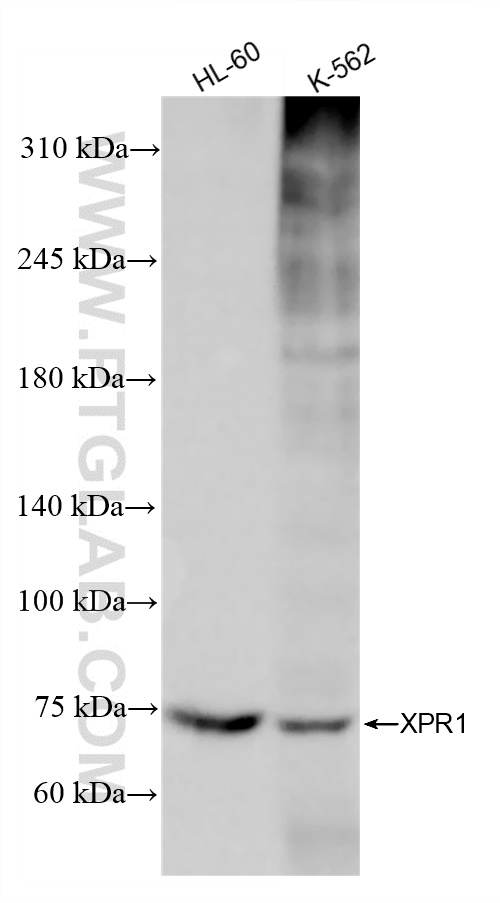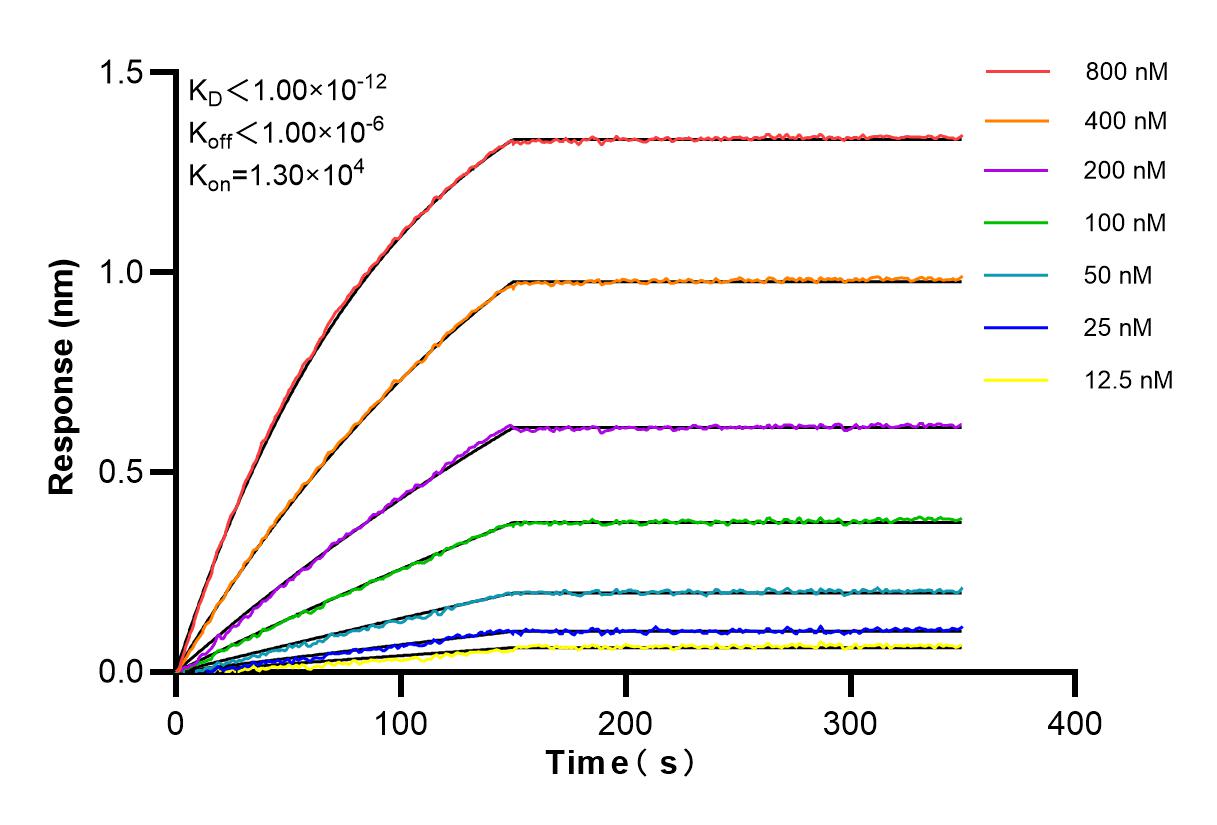验证数据展示
经过测试的应用
| Positive WB detected in | HL-60 cells, K-562 cells |
推荐稀释比
| 应用 | 推荐稀释比 |
|---|---|
| Western Blot (WB) | WB : 1:2000-1:10000 |
| It is recommended that this reagent should be titrated in each testing system to obtain optimal results. | |
| Sample-dependent, Check data in validation data gallery. | |
产品信息
84902-1-RR targets XPR1 in WB, ELISA applications and shows reactivity with human samples.
| 经测试应用 | WB, ELISA Application Description |
| 经测试反应性 | human |
| 免疫原 | XPR1 fusion protein Ag5373 种属同源性预测 |
| 宿主/亚型 | Rabbit / IgG |
| 抗体类别 | Recombinant |
| 产品类型 | Antibody |
| 全称 | xenotropic and polytropic retrovirus receptor |
| 别名 | SYG1, Solute carrier family 53 member 1, SLC53A1, Protein SYG1 homolog, Phosphate exporter SLC53A1 |
| 计算分子量 | 696 aa, 82 kDa |
| 观测分子量 | 74 kDa |
| GenBank蛋白编号 | BC041142 |
| 基因名称 | XPR1 |
| Gene ID (NCBI) | 9213 |
| 偶联类型 | Unconjugated |
| 形式 | Liquid |
| 纯化方式 | Protein A purfication |
| UNIPROT ID | Q9UBH6 |
| 储存缓冲液 | PBS with 0.02% sodium azide and 50% glycerol , pH 7.3 |
| 储存条件 | Store at -20°C. Stable for one year after shipment. Aliquoting is unnecessary for -20oC storage. |
背景介绍
XPR1 is a receptor for xenotropic and polytropic murine leukemia retroviruses and a homolog of yeast Syg1 and plant Pi transporter PHO1 (PMID: 20633538). XPR1 has been identified as an atypical G-protein-coupled receptor. Xenotropic or polytropic retrovirus binding to XPR1 can disrupt the cAMP-mediated signaling function of Xpr1, leading to the apoptosis of infected cells (PMID: 22090134). A band of about 82-100 kDa is probably due to abnormal migration of the protein or post-translation modifications. In addition, a band of about 55-72 kDa may be isoforms and fragments.
实验方案
| Product Specific Protocols | |
|---|---|
| WB protocol for XPR1 antibody 84902-1-RR | Download protocol |
| Standard Protocols | |
|---|---|
| Click here to view our Standard Protocols |

